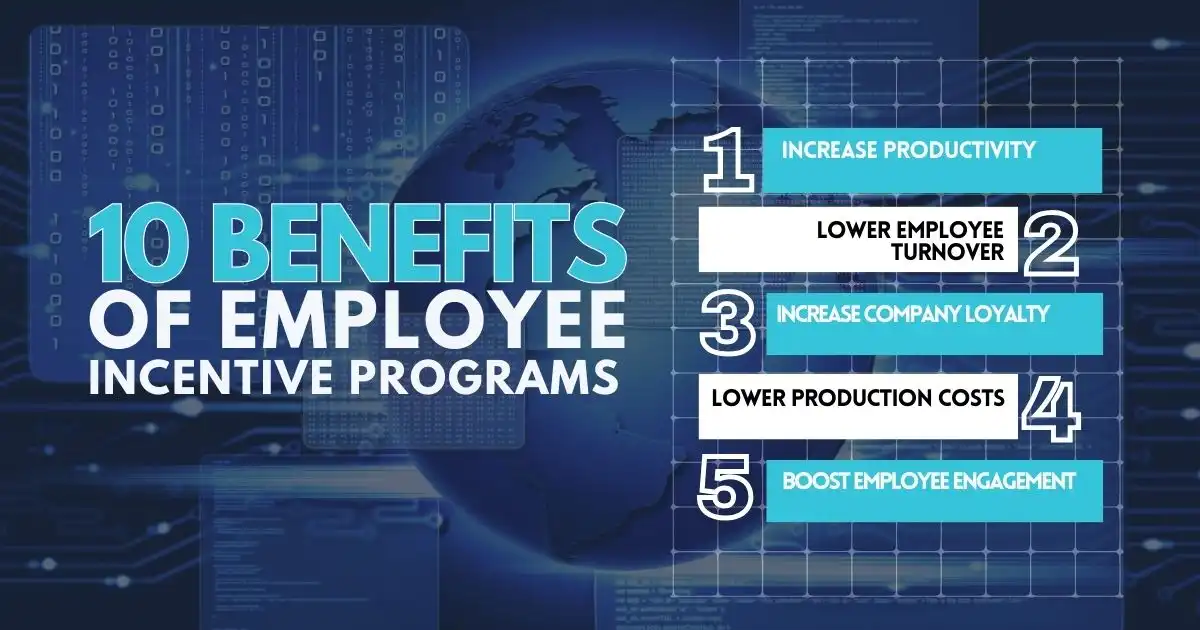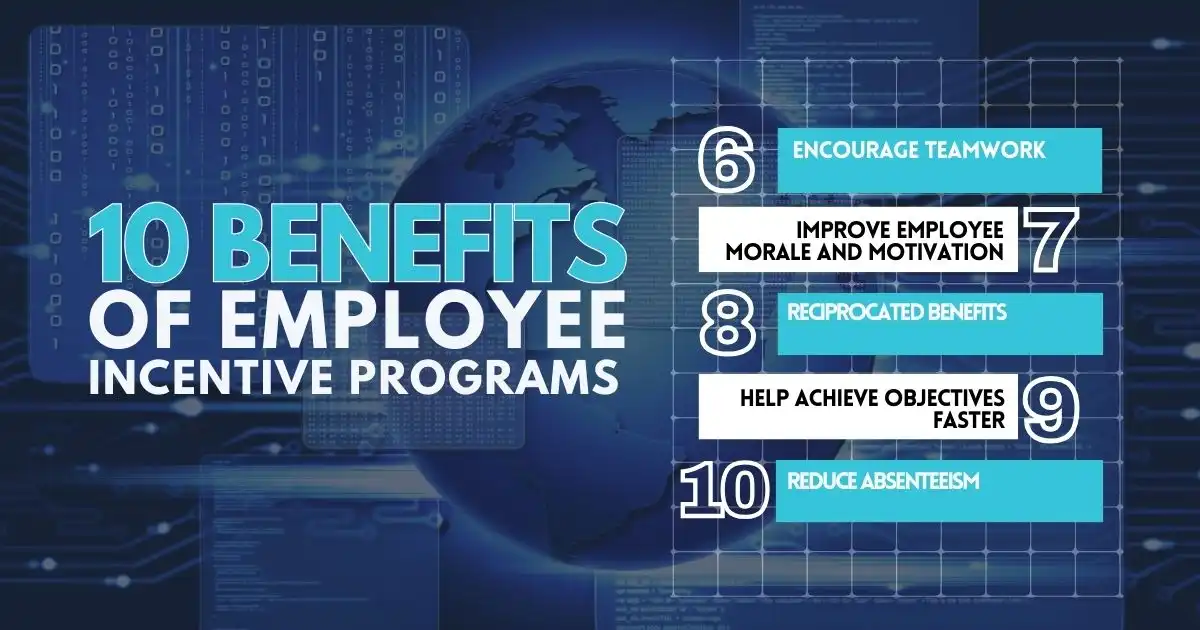No matter how exceptional a company may be, failing to recognize and reward employees for their hard work can lead to a loss of motivation. Over time, this oversight can negatively impact both the company’s performance and growth.
A study by Harvard Business Review benchmarked that employee incentive programs – particularly performance-related pay – demonstrated a positive correlation with enhanced job satisfaction, strengthened organizational commitment, and increased trust in management.
Incentives not only highlight that your work matters but also keep you motivated to perform your best and take on new challenges. They come in many forms, from cash bonuses to other cool rewards.
Types of Employee Incentives
Employee incentives can be divided into two main types: financial and non-financial. Financial incentives involve monetary rewards, such as bonuses or pay raises, aimed at motivating employees to perform better. These incentives help meet immediate financial needs and provide security, boosting confidence and productivity.
In contrast, non-financial incentives focus on emotional, social, and psychological rewards, such as recognition, career development opportunities, or a positive work environment. While these do not involve money, they increase employee satisfaction and engagement, leading to stronger loyalty and performance.
10 Benefits of Employee Incentive Programs
Here are 10 benefits of employee incentive programs, with examples to show how they can help both workers and companies.

1. Increase Productivity
Incentive programs encourage employees to meet certain goals. When employees strive to reach these targets, they work harder, and the company sees an increase in overall productivity. Employees feel motivated to produce better work, helping the business grow.
A company might offer a bonus for employees who reach a specific sales target each month. This motivates the sales team to work harder and hit their goals.
2. Lower Employee Turnover
Many workers today care about the incentives a company offers, like flexible hours or the chance to work from home. Companies that provide these types of incentives keep their employees happy and less likely to leave. This helps reduce turnover and keeps talented workers for longer.
A tech company offers remote work options and flexible hours. As a result, employees are more likely to stay with the company rather than look for a job with a better work-life balance.
3. Increase Company Loyalty
When companies reward good work, employees feel valued and more loyal. Employees are more likely to stay in a job where they are appreciated and have the chance to grow. As a result, they work harder and stay longer with the company.
A company offers recognition programs where employees receive awards for their hard work. This makes employees feel valued and encourages them to stay with the company longer.
4. Lower Production Costs
Although incentive programs may cost some money, they can help a company save in other areas. With lower turnover, companies don’t need to spend as much on hiring and training new workers. Incentives also reduce absenteeism, so productivity stays steady and costs stay down.
By offering a “perfect attendance” bonus, a company can reduce the number of sick days taken by employees, saving money on lost productivity.
5. Boost Employee Engagement
Many workers today feel disconnected from their jobs, which can hurt a company’s performance. Incentive programs help boost engagement by making employees feel more involved. When employees are encouraged to stay engaged, it can lead to higher productivity and better work.
A company organizes team-building events and provides rewards for completing training programs. This keeps employees engaged and motivated to perform at their best.

6. Encourage Teamwork
Teamwork is important for any company’s success. A good incentive program can create a collaborative work environment where employees work together instead of competing. This leads to better teamwork, improved communication, and a positive workplace.
A company sets up a team challenge, where departments compete to complete a project the fastest. The winning team gets a group outing or lunch, encouraging cooperation and team bonding.
7. Improve Employee Morale and Motivation
When employees feel satisfied with their work and rewards, they are more motivated. A well-designed incentive program can lift morale and push employees to do their best. This motivation helps the company achieve its goals and succeed.
A store gives employees an “Employee of the Month” recognition with a gift card or extra time off. This boosts morale and motivates employees to perform well.
8. Reciprocated Benefits
Loyal and motivated employees are valuable to any company. By offering incentives, companies invest in their workers. In return, employees produce higher-quality work, benefiting both the employee and the company.
A company offers tuition reimbursement for employees pursuing further education. In return, employees improve their skills, which benefits the company through higher-quality work.
9. Help Achieve Objectives Faster
Incentive programs set clear goals for employees to reach. When employees are motivated by rewards, they work harder to finish projects quickly. This helps the company meet its objectives faster.
A marketing firm sets a reward for the first team to launch a new campaign. This motivates the team to complete the project quickly and efficiently.
10. Reduce Absenteeism
With better incentives, employees are less likely to take unnecessary time off. This helps reduce productivity loss and keeps projects on track.
A company offers extra vacation days for employees who maintain perfect attendance for six months. This reduces absenteeism and keeps the workforce consistent.
How Incentive Programs Spark Performance
Employee incentive programs are more than just rewards—they are investments in both workers and the company’s future. A well-crafted incentive program can turn the tide by boosting productivity, reducing turnover, and fostering loyalty.
When employees are motivated through incentives like cash bonuses or recognition, they are more likely to stay engaged, deliver quality work, and collaborate as a team. It’s not just about what the company gains; employees benefit too, with better job satisfaction and growth opportunities.
Are you ready to put your efforts into motion and take your team to the next level? The right incentive program could be the spark that drives success, and the time to act is now. Let’s make hard work truly rewarding!
FAQs
What is the relationship between incentives and performance?
Incentives and performance are directly linked, as offering rewards motivates employees to work harder and achieve goals. Well-designed incentive programs improve productivity and job satisfaction, leading to better performance overall.
What are cash incentives, and how do they work?
Cash incentives are monetary rewards, like bonuses or pay raises, given for achieving goals. They motivate employees by directly impacting their financial well-being and recognizing their contributions to the company.
How can I incentivize employees without money?
Employees can be incentivized without money through recognition, career growth opportunities, or flexible work arrangements. Non-monetary rewards can significantly boost morale and engagement by fulfilling emotional and social needs.
What are some low-cost rewards for employees?
Low-cost rewards like extra time off, personal thank-you notes, or team-building activities are effective ways to recognize employees. These rewards create a positive work environment without requiring a large financial investment.
